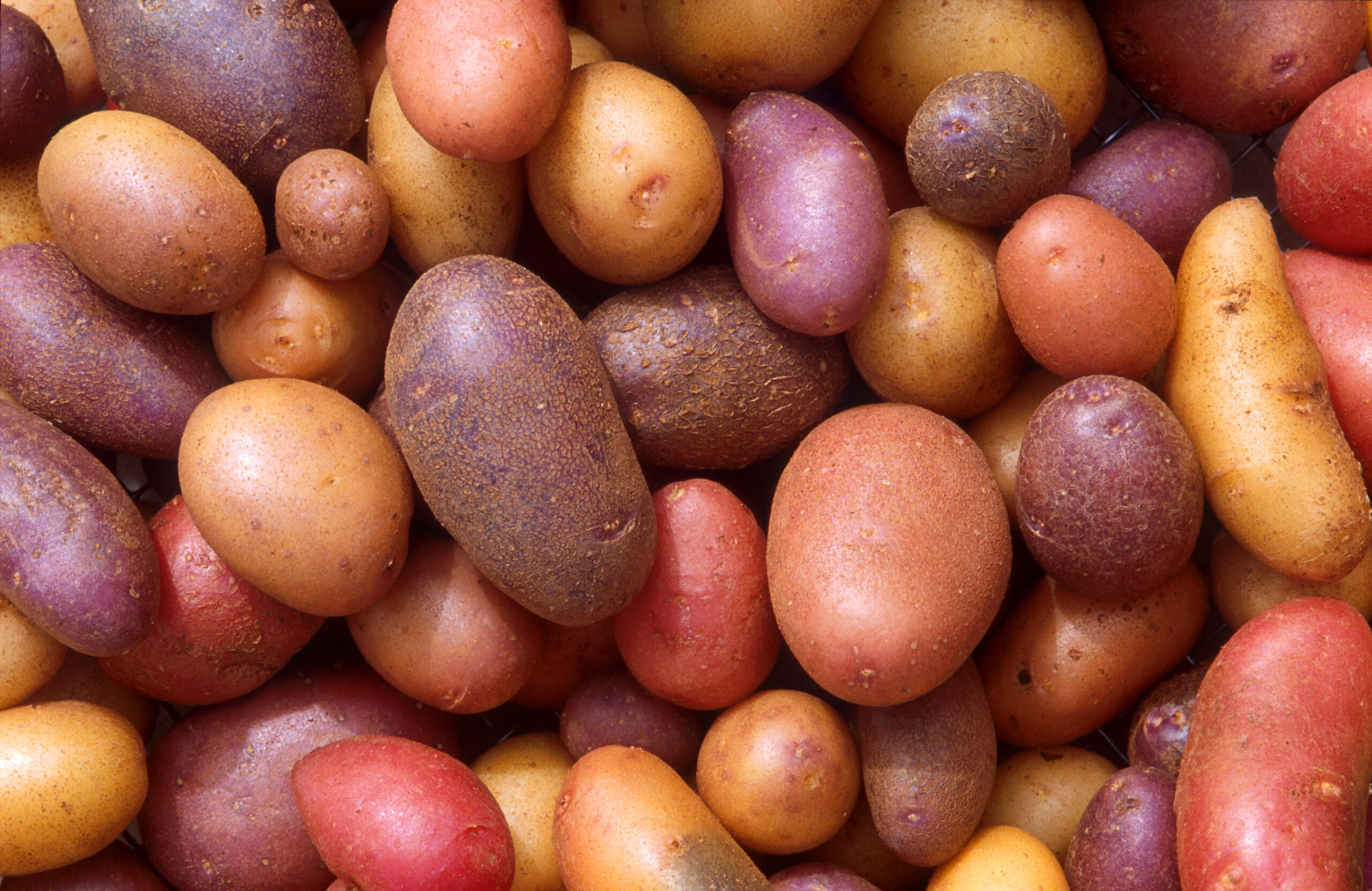Health Benefits of Potatoes
What are the health benefits of potatoes?
Potatoes offer several health benefits when consumed as part of a balanced diet:
- Rich in Nutrients: Potatoes are a good source of vitamins (such as vitamin C and some B vitamins) and minerals (such as potassium, magnesium, and phosphorus). They also provide fiber and antioxidants.
- Heart Health: The fiber, potassium, and vitamin C in potatoes can help support heart health by lowering cholesterol levels, reducing blood pressure, and decreasing the risk of heart disease.
- Digestive Health: The fiber in potatoes can help promote healthy digestion and prevent constipation. Resistant starch, found in cooked and cooled potatoes, acts as a prebiotic and can feed beneficial gut bacteria.
- Weight Management: Despite being starchy, potatoes can be a satisfying and filling food, which may help with weight loss when consumed in moderation and prepared healthily.
- Blood Sugar Control: Potatoes have a medium glycemic index, which means they cause a moderate rise in blood sugar levels. Choosing low-glycemic-index potato varieties and cooking methods can help manage blood sugar levels.
- Bone Health: Potatoes are a good source of potassium, which is important for bone health and may reduce the risk of osteoporosis.
- Skin Health: The vitamin C and other antioxidants in potatoes can help protect the skin from damage caused by UV rays and pollution, and may promote collagen production for healthy skin.
- Athletic Performance: Potatoes are a good source of carbohydrates, which are important for providing energy during exercise. They also contain some protein, which is important for muscle repair and growth.
Overall, potatoes are a nutritious vegetable that can be a healthy part of your diet. They can be enjoyed boiled, baked, roasted, or mashed, and can be a versatile ingredient in many dishes.
What are the health risks of potatoes?
While potatoes are generally safe for most people when consumed as part of a balanced diet, there are a few potential health risks associated with them:
- High Glycemic Index: Potatoes have a high glycemic index, which means they can cause a rapid increase in blood sugar levels. This can be a concern for people with diabetes or those trying to manage their blood sugar levels.
- Caloric Content: Potatoes are calorie-dense, especially when prepared with added fats or oils. Consuming large portions of high-calorie potato dishes, such as fries or chips, can contribute to weight gain if not eaten in moderation.
- Acrylamide Formation: When potatoes are cooked at high temperatures (e.g., frying, baking), they can form acrylamide, a potentially harmful chemical compound. Acrylamide has been linked to an increased risk of cancer in animal studies, although the evidence in humans is still inconclusive.
- Glycoalkaloids: Potatoes contain glycoalkaloids, natural compounds that can be toxic in high concentrations. Green potatoes or potatoes with sprouts may contain higher levels of glycoalkaloids and should be avoided.
- Allergic Reactions: Some individuals may be allergic to certain proteins in potatoes, which can cause mild symptoms such as itching and hives, or more severe reactions such as anaphylaxis.
- Digestive Issues: Some people may experience digestive issues such as bloating, gas, or diarrhea from consuming potatoes, especially if they are sensitive to certain types of carbohydrates or have conditions like irritable bowel syndrome (IBS).
- Pesticide Residue: Like other fruits and vegetables, potatoes may contain pesticide residue, especially if not organically grown. Washing potatoes thoroughly before eating them can help reduce pesticide exposure.
Overall, potatoes are a nutritious vegetable that can be a healthy part of your diet when consumed in moderation and prepared healthily. It’s important to vary your diet and include a variety of fruits, vegetables, whole grains, and lean proteins to ensure you’re getting a wide range of nutrients.




